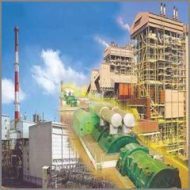The special economic zone scheme seems to be in trouble. The revised draft of the Direct Taxes Code does not envisage continuation of the income-tax concessions for units that may be set up after the end of the current financial year.
 The uncertainty means that many SEZ developers - especially those whose projects are under implementation - are not very hopeful of leasing their space to entrepreneurs who want to set up manufacturing, services or trading units in SEZ. They might prefer to get their SEZs de-notified. Some of them have already opted to do so.
The uncertainty means that many SEZ developers - especially those whose projects are under implementation - are not very hopeful of leasing their space to entrepreneurs who want to set up manufacturing, services or trading units in SEZ. They might prefer to get their SEZs de-notified. Some of them have already opted to do so.
The commerce ministry is convinced that the SEZ scheme has delivered good results. It claims investment of about Rs 1.50 trillion, direct employment to over 500,000 people and exports of about Rs 2.20 trillion from the SEZs in 2009-10.
Out of 578 formal approvals, 353 have been notified and 111 are operational. These figures deserve a closer scrutiny. They do not tell that much of the investment, employment and exports would have taken place anyway and that attractive tax breaks have only facilitated migration of investments to SEZ, especially in the information technology sector.
Essentially, the Indian SEZs were expected to provide world-class infrastructure, similar to what China offers in its SEZs. These expectations have been largely belied. Allowing small sector-specific SEZs has ensured that a lot of SEZs come up with only minimum facilities.
These small SEZs are like industrial estates that build minimum infrastructure to enable the units operate within their geographical area but rely heavily on the public infrastructure for their requirements of water, power, roads, ports, civic amenities, residences for employees and so on.
In fact, many SEZ developers have done little more than land acquisition and development. If the investment in plant and machinery in SEZs alone is counted, the figures for investment in SEZ may not look all that attractive. Again, the quantum of investment in SEZ projects other than the IT sector may not look all that impressive.
Some SEZs have been created to accommodate only one unit - that of the developer. Such captive SEZs avail of the tax breaks but build infrastructure to meet their own requirements only. The units have come up as a substitute for expansions in the domestic area.
Export orders from domestic units have been diverted to these SEZ units to avail the tax benefits. Now, a proposed convention centre has got the SEZ status and even a standalone hotel might get it. Basically, they are real estate ventures. Was the SEZ scheme intended to encourage investment in and give tax breaks to such ventures?
The finance ministry has always been uncomfortable with so many duty-free enclaves littered all over the country. Besides revenue losses, it has been apprehensive about the administrative hassles.
Now, the ministry seems convinced that it is time to check further proliferation of SEZs. Land acquisition issues, global economic uncertainty and now, uncertainty about tax breaks have contributed to lack of enthusiasm about SEZ scheme but more important, serious questions are being raised about the social benefits of the SEZ scheme.
The government must quickly review its present SEZ policy. Beyond a stage, encouraging investment in duty-free enclaves by giving attractive tax breaks merely diverts investment and gives progressively lesser and lesser social benefits.










